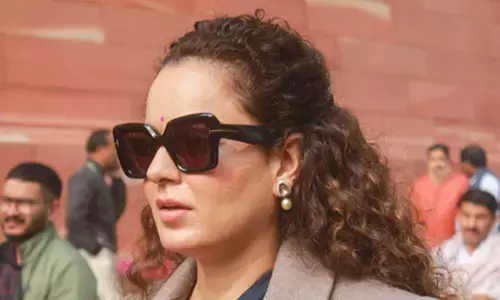The essence of Jamshedi Navroze

Parsis in the city celebrated Jamshedi Navroze on Saturday, the day of the spring equinox. Navroze means new day and it is named after King Jamshed of ancient Persia, who was the first king to celebrate the spring festival. It marks the beginning of Spring and the end of winter in the northern hemisphere.
This year’s sign is sheep and the Navroze colour is brown. So it is considered auspicious to wear brown
Parsis in the city celebrated Jamshedi Navroze on Saturday, the day of the spring equinox. Navroze means new day and it is named after King Jamshed of ancient Persia, who was the first king to celebrate the spring festival. It marks the beginning of Spring and the end of winter in the northern hemisphere.
On the occasion, Parsis set out items like sprouts, wheat germ, apples, pomegranate, garlic, gold coins, vinegar, a lit ‘diya’, a mirror, rosewater, painted eggs, dry fruit, sweets and different kinds of fresh fruit. Some place a goldfish or an orange in a bowl of water on the Navroze table.
.jpg)
Sprouts represent the rebirth of spring, apples are for beauty, rosewater for sweetness, goldfish for life, garlic for health, coins for prosperity and the mirror and ‘diya’ represent light and goodness. This year’s sign is that of the sheep and the Navroze colour is brown. So it is considered lucky to wear brown this year.
Zoroastrians visited the Fire Temple for the ‘jasan’ the thanksgiving prayer. It is that time of the year when Parsi families call their friends and relatives over for falooda and, ‘ravo’ which is a sweet dish served on auspicious occasions. The elders of the community like Shireen J Mistry of Abids will prepare homemade delicacies starting with ‘Sev’ or sweet vermicelli for breakfast.
.jpg)
In the evening, the Zoroastrians of the twin cities gathered in large numbers at the Zoroastrian Club, the venue of many festivities as well as sporting events, for a sumptuous dinner served on banana leaves. The dinner comprised Patra-ni-Macchi (chutney fish steamed in banana leaves), Sali-ma-Margi (chicken cooked with potato straws) and Palao-Dal (mutton pilaf with masala dal).
By:Beyniaz Eduljee
















